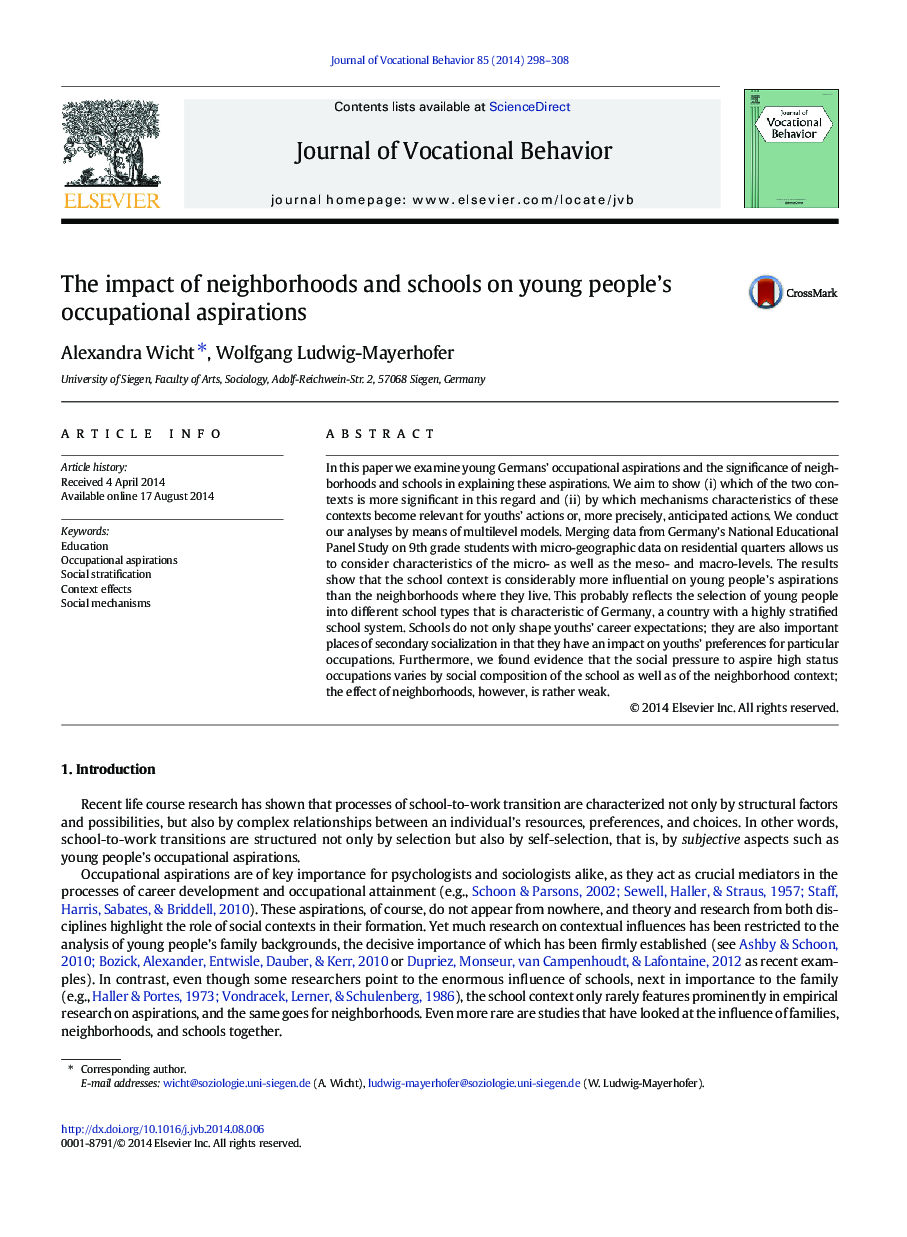| Article ID | Journal | Published Year | Pages | File Type |
|---|---|---|---|---|
| 886843 | Journal of Vocational Behavior | 2014 | 11 Pages |
•We investigate the influence of social contexts on occupational aspirations.•Schools have a greater impact on youths’ occupational aspirations than neighborhoods.•Upper class neighborhoods seem to provide positive role models.•Schools shape occupational aspirations by transmitting socially formed mentalities.•The type of school is particularly important in a stratified educational system.
In this paper we examine young Germans’ occupational aspirations and the significance of neighborhoods and schools in explaining these aspirations. We aim to show (i) which of the two contexts is more significant in this regard and (ii) by which mechanisms characteristics of these contexts become relevant for youths’ actions or, more precisely, anticipated actions. We conduct our analyses by means of multilevel models. Merging data from Germany’s National Educational Panel Study on 9th grade students with micro-geographic data on residential quarters allows us to consider characteristics of the micro- as well as the meso- and macro-levels. The results show that the school context is considerably more influential on young people’s aspirations than the neighborhoods where they live. This probably reflects the selection of young people into different school types that is characteristic of Germany, a country with a highly stratified school system. Schools do not only shape youths’ career expectations; they are also important places of secondary socialization in that they have an impact on youths’ preferences for particular occupations. Furthermore, we found evidence that the social pressure to aspire high status occupations varies by social composition of the school as well as of the neighborhood context; the effect of neighborhoods, however, is rather weak.
